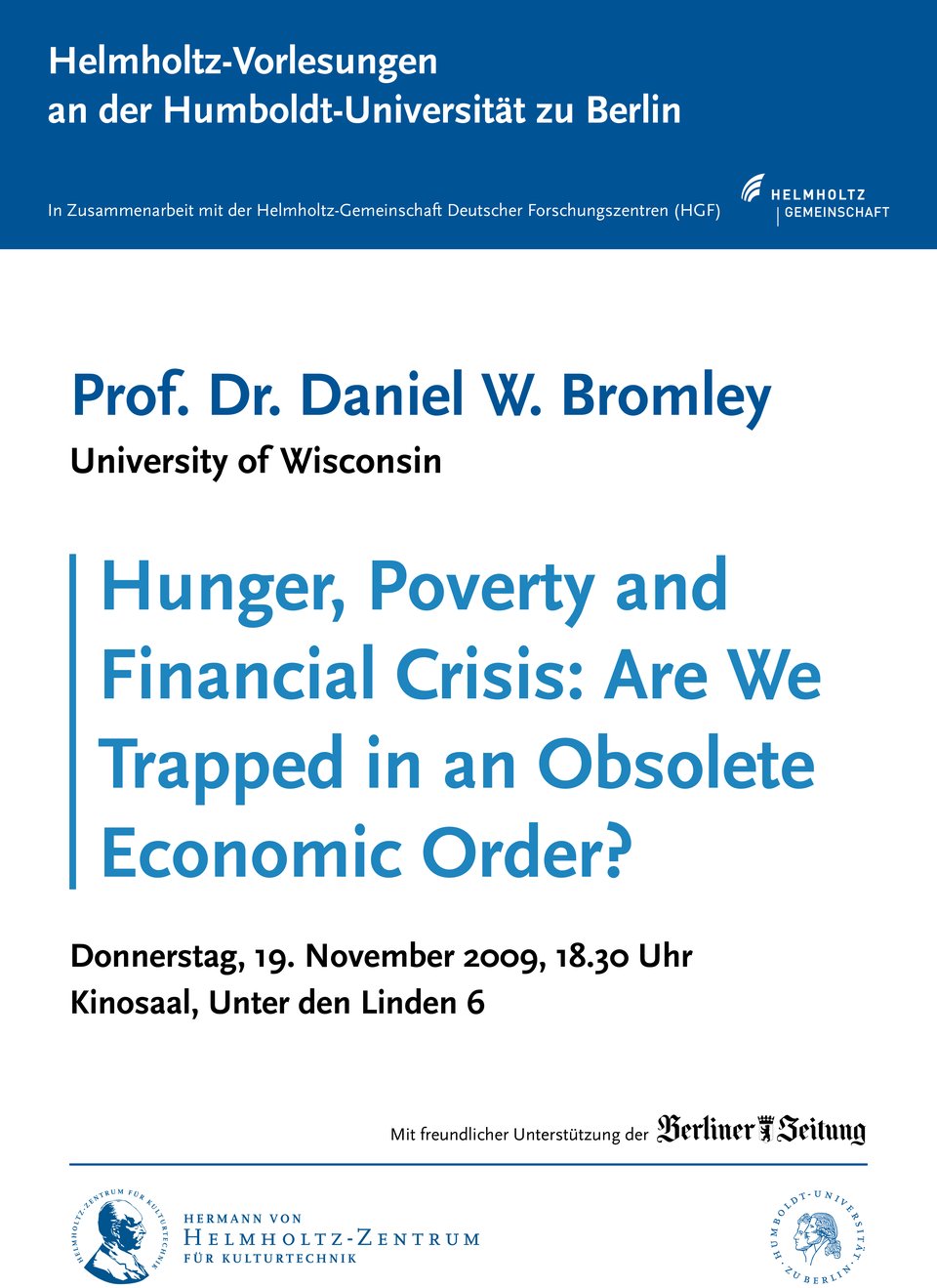Zentralinstitut der Humboldt-Universität zu Berlin

Was haben der Hunger und die Armut großer Teile der Weltbevölkerung und die globale Finanzkrise gemeinsam, und wie können diese Probleme von unserem Wirtschaftssystem gelöst werden? In seinem Vortrag zeigt Prof. Bromley Parallelen und Unterschiede zwischen diesen Phänomenen. Weiter erläutert er die Leitgedanken der weltwirtschaftlichen Ordnung und legt dar, wie durch sie eine Welt mit unvorhersehbaren Schwankungen zwischen Hochkonjunktur und Rezession, zwischen Ordnung und Chaos gesteuert wird.
»The current financial and economic crisis has, at least for the
moment, focused the world’s attention on the urgent global problems, the
most pressing being the totally unbalanced distribution of resources
among the world’s population. This causes hunger, disease, and war
whereas our economic and financial order promises a development that
will lead to sufficient food, health care, and peace for everybody. In
the light of recent losses one is lead again to ask whether our present
system can live up to its promises or whether it is crisis ridden for
inherent reasons. The talk will try to understand the performance of our
economic system, especially its ups and downs, its seemingly
unpredictable swings from boom to bust, from chaos to stability, on the
basis of its main structural properties. This assessment will allow to
discuss the effect of possible changes towards a more stable, more
equidistributed, and more sustainable development.«
Prof. Daniel W. Bromley studierte und promovierte im Feld der Umwelt- und Ressourcenökonomie an der Oregon State University. Er ist Inhaber der Anderson-Bascom Professur an der University of Wisconsin im Fachbereich Landwirtschaftliche und Angewandte Volkswirtschaftslehre. Bromleys Forschungsarbeit hat ihre Wurzeln in der Institutionenökonomie. Seine besonderen Interessen liegen dabei im Bereich der rechtlichen und philosophischen Aspekte von Verfügungsrechten sowie in der Politikberatung in Bezug auf Probleme der wirtschaftlichen Entwicklung und der Nutzung natürlicher Ressourcen. Er ist Fellow der »Association of Environmental and Resource Economists« (Gesellschaft für Umwelt- und Ressourcenökonomie) und berät gegenwärtig als Mitglied des »National Academy of Sciences Committee on America’s Climate Choices« die US-Regierung in Fragen politischer Strategien zur Minderung des Klimawandels.
- Daniel W. Bromley: Sufficient Reason: Volitional Pragmatism and the Meaning of Economic Institutions , Princeton: Princeton University Press, 2006.
- Daniel W. Bromley: Economic Interests and Institutions: The
Conceptual Foundations of Public Policy, Oxford: Blackwell, 1989.
